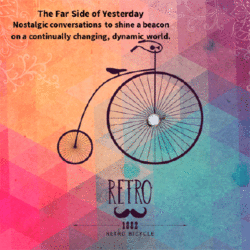Sweet menacing silence.
Silence is often a momentary revelation of your deepest self, your true self and perhaps a self that you do not yet know. We claim to long for quiet time, but many of us have become addicted to noise. We fill in conversational lulls with awkward, meaningless chatter about the weather or the price of gasoline. Anything other than suffer silence.
Take a look in the mirror. Are there long dangling cords swirling around your neck and shoulders that are bonded to bulbous buds jammed semi-permanently into your inner ears? Are your hands welded to an electronic gizmo of some sort – phone, tablet, video console that is either screeching, laughing hideously, booming or snuffing out life? If so, you are a solid citizen of the plugged-in generation and tethered to social media. Membership criteria include thriving on constant background noise, signs of bereavement without a cell phone and cringing at the sounds of silence.
Forgive my naivete, but what is so social about dedicating hours to scrolling through photos, posts or Tweets from virtual strangers that proffer no consequential or beneficial communication and are void of interaction with others about the subject matter? Where is the deeper, more emotional connection among “friends” as defined in sites such as Facebook? It is often difficult, if not impossible, on social media to reveal the qualities that define deep, meaningful relationships. While our social media friends offer us a great deal, they are not a true substitute or even supplement for real-life interactions with others.
Done right, Social Media dismisses the barrier between real life and Internet life. The Internet lays the world before your fingertips. A few clicks and you can connect with anyone, anywhere and at any time. Nurturing and deepening real-life relationships and the freedom to speak candidly may be unrecognized costs. We live in a hypersensitive society where people are poised to pounce, take offense, and make a big deal about nothing. In today’s society, insecurity and relationship anxiety is just a link away.
Ideally, social media should improve life, not become life. Does it?
Research tells us that human beings innately crave social approval from others. Engaging in social media may be a means to measure self-worth and invent a persona defined by popularity metrics such as the number of accrued likes or the number of enticed followers.
Craving recognition emboldens many users to manipulate their profile to posture as the ideal “friend”; hopefully someone that renders all others totally inadequate and dreary by comparison. In truth, every user controls the facets of the life and personality they broadcast on social media. Consequently, many social media sites are founded on quicksand that will suck down those who feel they are less popular or worthy than others, or more devastating, those feeling rejected by their peers. Ironically, we depend on technology and social media so much that it can actually tear real relationships farther apart.
As such, social media is a frame of mind and a state of being. Consider how easy it is to tune in to the Internet and tune out the real world.
Video games, for one, offer comfort by camouflaging reality with mind numbing music, repetitive moves and fantasy worlds that accumulate points, raise your avatar to higher, more prestigious levels and validate your prowess with the top ranking on a list of competitors. Plugged into music, games, or movies, you are in charge and can fixate on anything but the task at hand. It is a socially sanctioned reason to escape work that challenges us on a deeper level. It becomes seductively magnetic.
Many individuals get their news from social media, favorite sites, friends and colleagues that share their political and cultural views. Because of the selectivity of social media, we can deftly avoid contrary and alternative views. We are content that search engines, including Google search, personalize our exploration of the internet, enabling us to see only what we want to see. We obtusely ignore the fact that various algorithms behind the scenes map customized search corridors that selectively filter information.
Such filters are not necessarily bad, given the overload of meaningless noise and information clogging the internet. However, a valid informational network must provide representative coverage of all the relevant information to be effective and open.
Nothing creates trust issues like social media. As Elijah Millgram argues in The Great Endarkenment (2015), modern knowledge depends on trusting long chains of experts. It is impossible for one single person to check up on the reliability of every member of that chain. Instead, we depend on a vastly complicated social structure of trust. The prime tenet for success is that we must trust each other.
Social media can extort the inherent vulnerability in trust. Networks designed for social reasons have metamorphosed into information and even propaganda feeds. New websites promote links to their self-serving stories on social media in order to drive traffic to them. Many users have no idea that the content is fake to begin with.
Social media has become an easy target for both real people and bot spammers to assault users with information. Children and teenagers are vulnerable to cyber-bullying because they do not fully comprehend the consequences and risks when they post on social media. The increased use of mobile phones for social media interactions can pinpoint a location, making us targets for cyber-stalkers. Smartphones are actually killing us. Pedestrian deaths have risen steeply because pedestrians and drivers have evolved into Texting Androids.
A new trend referred to as “text neck” describes the neck pain or headaches people experience from prolonged periods of time tilting their heads at unnatural angles to stare down at their smartphone or tablet.
With all this, it was inevitable that the phrase “social media anxiety disorder” would surface. The term defines a feeling of stress or discomfort related to the use of social media, often due to an intense focus on the level of popularity someone thinks they have achieved – or failed to achieve – on platforms like Facebook and Twitter. There is not an official medical designation for social media anxiety disorder. While it is merely a description of a cluster of behaviors associated with heavy or excessive use of social media, it has become the subject of discussion and research.
Researchers at Chicago University intent on measuring how well people could resist their desires, concluded that Tweeting or checking emails may be harder to resist than cigarettes and alcohol. Various surveys find people more willing to give up food, sleep and sex than to lose their Internet connections. And at Harvard University, researchers found that self-disclosure communication stimulates the brain’s pleasure centers much like sex and food do.
One recent study found that half of us would rather have a broken bone than a broken phone.
If such studies are correct, the pleasure we derive from sharing morsels of our lives on social networks may help explain the phenomenon of social media addiction – expending so much time on Facebook that it interferes with the rest of our lives.
But, is all this truly an addiction or an emerging form of social interaction?
Like other addictions, we get a titanic kick from dopamine, a brain chemical released every time we receive a message on our phones that literally makes us happy. So, we keep checking our phones, hoping to get another hit.
If an addiction, recovery necessitates retreating from the cacophony of a chaotic world, closing your mouth and opening your mind. Ignore the ding that signifies “you have a new message!!” and silence reigns. Respond to it and you slide down the rabbit hole.
If an emerging form of social interaction, it is not yet ready for consumption. There is no clear definition or consensus of what social media is, can be or will be. Part of the offending noise is babble over the consequences, significance and impact of living online and rarely looking into the eyes of a friend. Is it a slip and slide into fantasy where falsehoods reign and truths are feared? Or is it a two-way street that offers the ability to freely communicate our insights and ideas that lead to problem solving?
As with anything, balance seems to be the key.
When you realize that your life purpose lies buried beneath confusion, complexities, demands and distractions, pull off that headset and be still. Let thoughts of glory, benefits or the impression you make slither away and realize that your purpose for existence remains, always ready to be lived and fulfilled. Life is a gift more precious, powerful and tenuous than any gamer can imagine or reproduce.
It has been said that what you do today gets done and what you put off until later gets neglected. Tomorrow is a handy excuse because it never arrives. Today is the moment to take action, to live your dream and work your magic. We live in a world where barriers are blurred and our physical independence is no longer the only thing we have to protect. Our minds are in conflict and our brains need a respite from this self-imposed digital drug that keeps us doing things just so we can tell others that we did them.
Instead, try watching kids spinning on a merry-go-round or listen to the rain splattering on the ground. Trace the erratic flight of a humming bird or gaze at the sun as it fades into night. Don’t fly through each day and when you ask ‘How are you?’ hear the reply.
“Don’t lose what is real, chasing what only appears to be.” Anonymous

